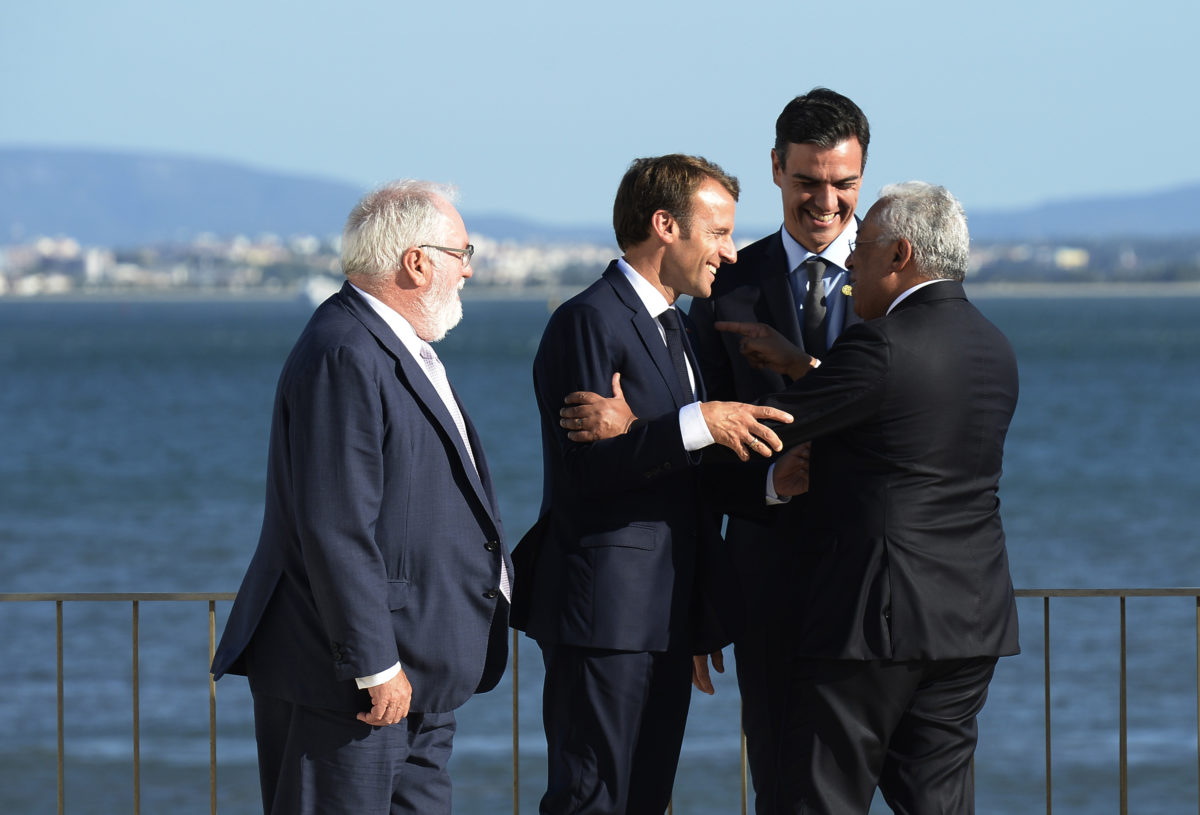In the presence of the European Commission, the Prime Minister of Portugal, António Costa, the President of France, Emmanuel Macron, and the President of the Government of Spain, Pedro Sanchez signed the Lisbon Declaration last Friday.
The signatories held a corresponding summit in the Portuguese capital to discuss the further integration of the Iberian energy market. According to an announcement, the declaration includes, among other things, a plan to build an energy interconnector between Spain and France over the Bay of Biscay.
This would serve to double the current interconnection capacity between the Iberian Peninsula and the EU, once commissioned by 2025. A 280 km undersea power line will, in particular, play a vitally important role in meeting the 15% interconnection capacity target set by the preceding Madrid declaration. The EU committed to financial participation in the project of €578 million.
EU Commissioner, Miguel Arias Cañete said, “A solid and resilient energy infrastructure is … essential to encourage regional action in new areas, such as renewables and energy efficiency. This will help us deliver on our Paris Agreement commitments. I am particularly pleased by the signing of a grant agreement for the power line crossing the Bay of Biscay, the largest investment in energy infrastructure under Connecting Europe Facility ever awarded. It is good for Spain and Portugal, good for France, and good for Europe.”
Increase interconnection
The Madrid Declaration was signed in 2015 to help connect the Iberian Peninsula with the European Internal Energy market. Insufficient interconnection capacity has been an obstacle for the creation of an electricity market in South-West Europe, and energy companies within the region have little chance to participate in the wider European market. The current interconnection capacity is just 6,000 MW, which reportedly effectively makes Spain and Portugal electricity islands.
Since the signing, a number of projects – currently at various stages – have been kickstarted to connect the Iberian Peninsula with the European Internal Energy market. Aside from the Bay of Biscay line, there are also two Pyrenean crossings planned, an interconnection between Spain and Portugal, a gas pipeline, which is set to be commissioned by the end of this year, and several other projects.
The newly-signed Lisbon Declaration reiterated support for the projects, while the EU upped its financial support to meet those targets. Reportedly, it has earmarked €865 million for the construction of interconnections via its various financial institutions and vehicles, like the European Fund for Strategic Investment.
European Commission President Jean-Claude Juncker said, “Today's event shows the value of European solidarity and regional unity. By agreeing on steps forward to complete the energy interconnections between France, Portugal and Spain and ways to enhance our regional cooperation, we are strengthening the security of energy supply across Europe and delivering on our promise to make Europe number one on clean energy and renewables. The world looks to us for leadership in these turbulent times. Let's show just how much unity can achieve.”
This content is protected by copyright and may not be reused. If you want to cooperate with us and would like to reuse some of our content, please contact: editors@pv-magazine.com.




By submitting this form you agree to pv magazine using your data for the purposes of publishing your comment.
Your personal data will only be disclosed or otherwise transmitted to third parties for the purposes of spam filtering or if this is necessary for technical maintenance of the website. Any other transfer to third parties will not take place unless this is justified on the basis of applicable data protection regulations or if pv magazine is legally obliged to do so.
You may revoke this consent at any time with effect for the future, in which case your personal data will be deleted immediately. Otherwise, your data will be deleted if pv magazine has processed your request or the purpose of data storage is fulfilled.
Further information on data privacy can be found in our Data Protection Policy.